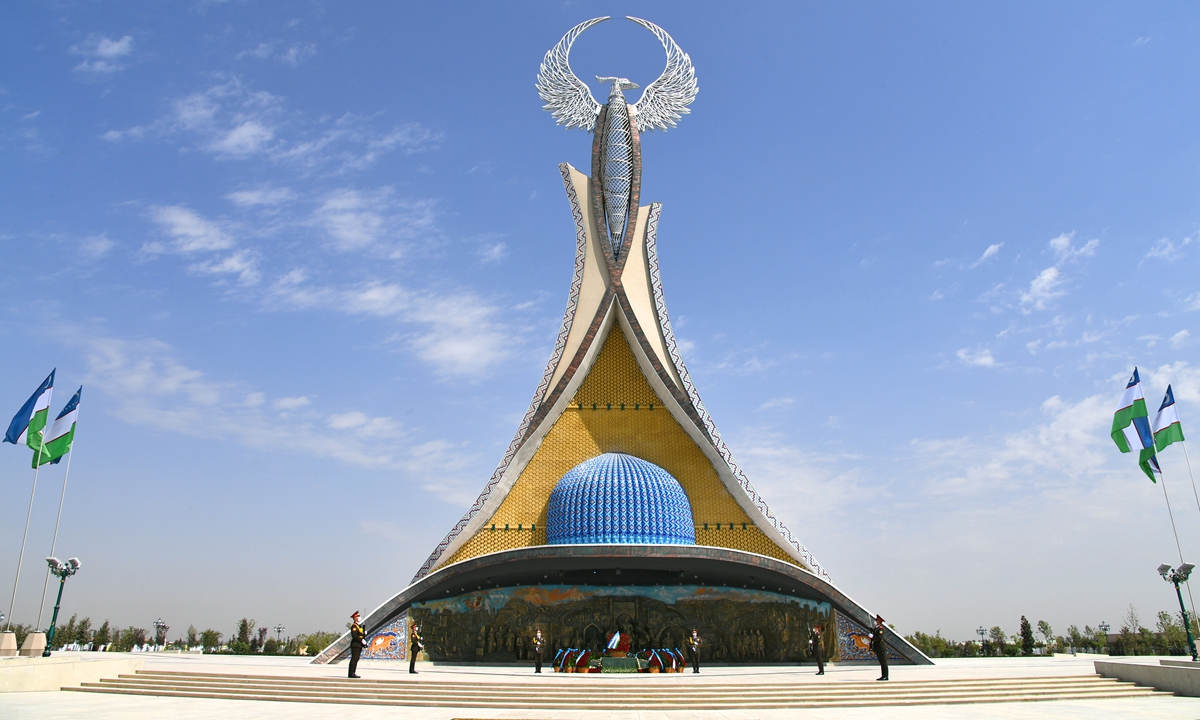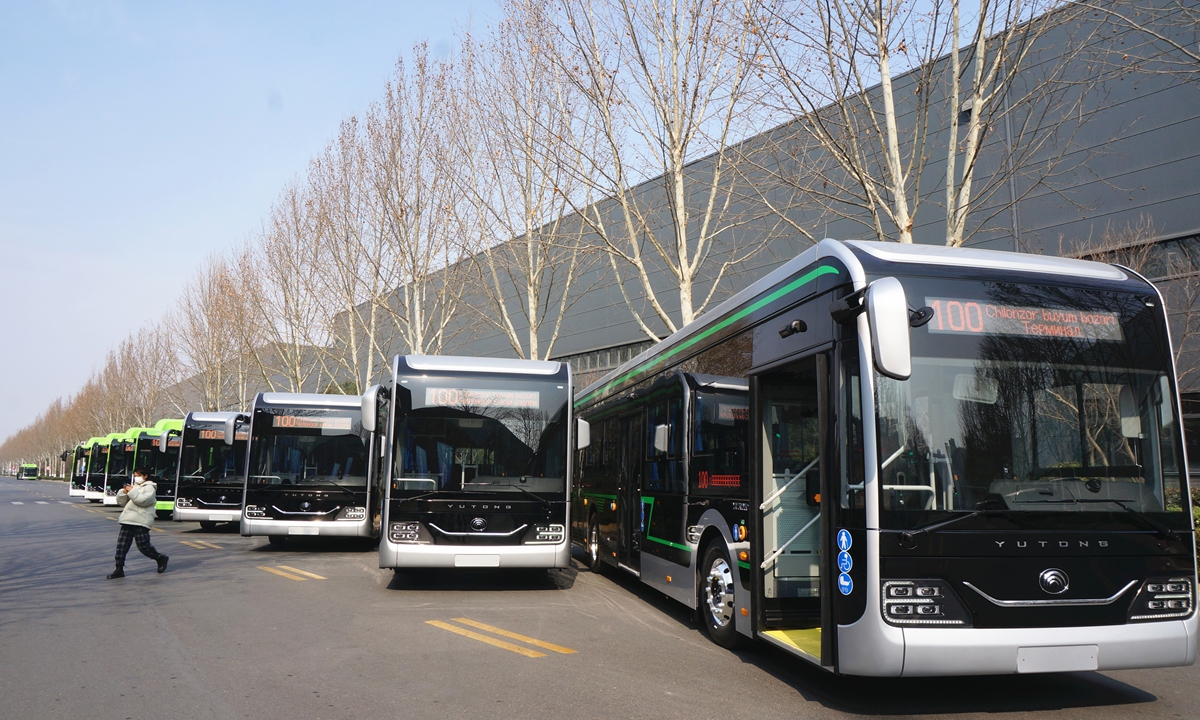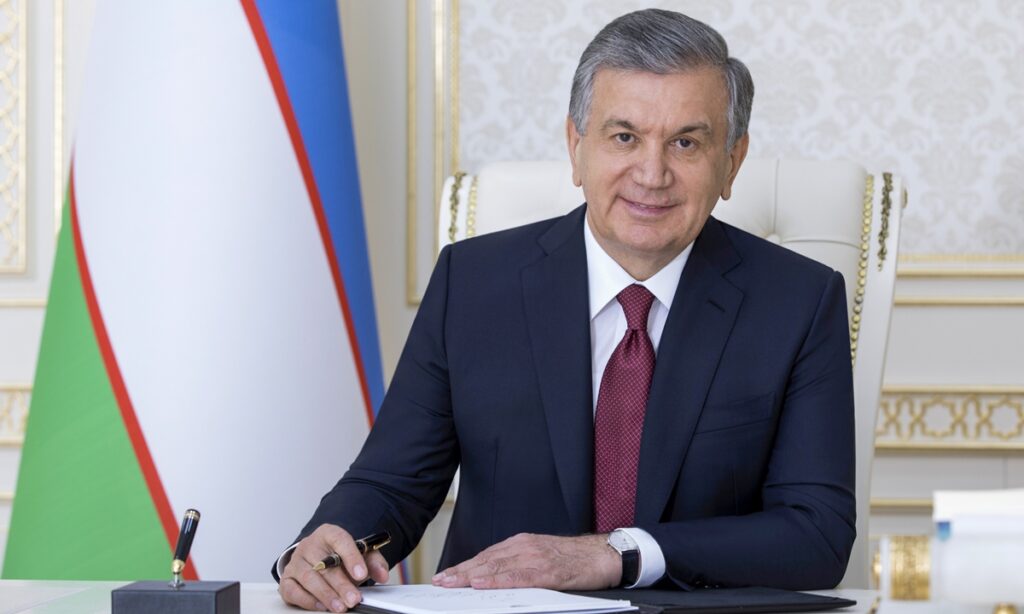Fortified Friendship
As the much anticipated China-Central Asia Summit – the first major diplomatic event that China hosts this year – to be held in Xi’an, Northwest China’s Shaanxi Province, draws near, the world watches on, paying keen attention to every detail of the event which is believed to be of monumental significance to relations between China and Central Asian countries.
The upcoming summit is also expected to usher in new development opportunities for all participating countries with fortified friendship.
As an important Central Asian country, Uzbekistan has witnessed close cooperation with China in various fields over past decades. Ambassador of Uzbekistan to China Farhod Arziev told the Global Times in an exclusive interview that “the expectations from this summit are high. First of all, new and important agreements will be reached on the further expansion of trade and economic cooperation between our countries. In particular, a Business Council is being created in the format of Central Asia-China.”
According to him, all parties will start developing a strategy for a new China-Central Asia economic dialogue, which was proposed by the President of Uzbekistan Shavkat Mirziyoyev during the virtual summit of the heads of state of Central Asia and China in January 2022.
This strategy aims to provide for the adoption of targeted measures to ensure unhindered trade and increase the volume of supplies of finished products from the countries of Central Asia to China, the formation of a common space for industrial cooperation and localization for the production of goods imported by the countries of the region using Chinese technologies.
Another important event within the framework of the summit will be the launch of the “Year of Culture and Art of the Peoples of Central Asia and China,” which was also proposed by the President of Uzbekistan in order to further expand and strengthen cultural and humanitarian ties between our countries, the ambassador noted.
After the summit, the President of Uzbekistan Shavkat Mirziyoyev will pay a state visit to China.
“The upcoming state visit to China will undoubtedly give new impetus to further strengthen the comprehensive strategic partnership between Uzbekistan and China. Within the framework of the visit, a solid package of agreements is being prepared in the political, trade, economic, cultural and humanitarian spheres,” Arziev introduced.
Due to joint efforts, practical cooperation between the two countries is deepening in virtually all areas. Uzbekistan and China effectively cooperate within the framework of international and regional organizations, in particular, the UN and the Shanghai Cooperation Organization (SCO).
“China’s experience in sustainable development is very attractive to us. We actively adopt from the advanced Chinese experience,” the ambassador said.
At the initiative of the President of the Republic of Uzbekistan, one of the regions of Uzbekistan – the Syrdarya region, is becoming a “Region of Advanced Innovations” based on the application of experience, attracting investments and technologies from China, according to the ambassador.

A view of the Independence Monument at the Uzbekistan park in Tashkent, Uzbeksitan. Photo: Courtesy of Uzbek Embassy in Beijing
Closer bond under BRI
The year of 2023 also marks the 10th anniversary of the Belt and Road Initiative (BRI). China and Uzbekistan have witnessed closer cooperation under the BRI.
Arziev pointed out that the joint construction of the BRI is of global importance. “In a historically short period, the BRI has demonstrated its viability, and plays an important role in the development of regional and international cooperation, opening up new opportunities for the development of countries participating in this initiative,” he said.
“I am sure that the further implementation of the BRI will deepen the relationship and cooperation between countries and contribute to ensuring the peace, stability, and prosperity of the involved countries and regions,” he stressed.
Uzbekistan supports and plays an active role in the implementation of the BRI. One of the priority areas for China-Uzbekistan cooperation within the framework of the BRI is the implementation of transport and communication projects. The formation of transport corridors is a priority for the enhancement of interconnectedness between the two countries.
Speaking at the meeting of the heads of state of Central Asia and China in 2022, President Shavkat Mirziyoyev emphasized the importance of developing systemic solutions to ensure uninterrupted cargo flow and develop regional logistics networks along the China-Central Asia route.
In this vein, one of the strategically important projects is the construction of the China-Kyrgyzstan-Uzbekistan railway, as a part of trilateral agreements which were reached during the Samarkand SCO summit in September 2022. The implementation of this project will reduce the delivery time of goods between Central Asia and China many times over, while easing cargo flow along existing routes.
“The China-Kyrgyzstan-Uzbekistan railway will not only benefit the three countries, but will also be of great importance in connecting Eurasia and ensuring a safe and seamless supply chain,” said the ambassador.
Other important areas of Uzbekistan’s participation in the BRI affect issues of trade and investment cooperation, and interaction in the field of tourism, healthcare, cultural, and humanitarian exchanges.
In recent years, Uzbekistan has actively participated in the BRI. China maintains its position as Uzbekistan’s leading trading partner. China also remains the largest export market for Uzbekistan-made products. At the end of 2022, mutual trade between Uzbekistan and China amounted to about $9 billion.
“China is not only a ‘global factory,’ but also a ‘global market.’ Therefore, Uzbekistan is interested in maximizing the use of these opportunities, taking into account the complementary advantages of our economies,” he said.
The investment projects currently being implemented by Uzbekistan with the participation of Chinese investors contribute to the innovative development of the national economy, the technological modernization of production facilities, the introduction of digital technologies, and the promotion of the green agenda.
“We see great prospects in using the huge potential of China, as one of the world leaders, in the digitalization of the economies of Central Asia, including within the framework of the Digital Silk Road project,” said the diplomat.
There are also great prospects in the field of innovation for cooperation between the two countries. Both China and Uzbekistan have good experiences in cooperation in the field of vaccines and currently, efforts are being made to create an Uzbek-Chinese biotechnology cluster.
Cooperation in education, science, professional training, and tourism is also expanding. The number of flights between the two countries has also been doubled. At the moment there are 12 flights a week from Chinese cities, including Beijing, to Uzbekistan.

A fleet of 800 buses is shipped from a bus factory in Zhengzhou, Henan Province on March 2, 2023, and will be exported to Uzbekistan. Photo: VCG
Expanded cooperation
Arziev said that particular attention is now being paid to unlocking the potential of cooperation in the fields of energy, the green economy, artificial intelligence, digitalization, and e-commerce.
A five-year program of trade, economic, and investment cooperation is being implemented. It is opening up the creation of new opportunities for trade and economic circles.
Currently, cooperation between Uzbekistan and China in the fields of investments and modern technologies is becoming increasingly intense. With the participation of Chinese companies and financial institutions, a number of large investment projects in industrial cooperation and infrastructure modernization are being implemented. The volume of investments in Uzbekistan’s economy in recent years has exceeded $10 billion.
Today, Chinese direct investment is actively present in energy, chemicals and pharmaceuticals, the agricultural sector, light industry, and other sectors. As a result of mutual efforts, agreements were reached on the implementation of over 150 new joint investment projects.
“Interaction in matters of poverty reduction has also become an important area of practical cooperation. China’s successful experience creates good opportunities for exchanges and cooperation in the development of rural industries, the modernization of the agricultural sector, and the strengthening of rural infrastructure. A subcommittee on poverty reduction is being created within the framework of the Uzbek-Chinese Intergovernmental Committee,” Arziev said.
It is well known that bilateral relations have deep historical roots. Connections in the sphere of politics, economics, and culture date back more than 2000 years.
Today, one of the important directions of Uzbekistan’s foreign policy is the further strengthening of a comprehensive strategic partnership with China, said Arziev. More importantly, the two countries adhere to the principle of non-interference in the internal affairs of other countries while firmly supporting each other in choosing independent ways of development.
At the same time, the large-scale reforms carried out in Uzbekistan in recent years, affecting almost all aspects of its development, have opened up new opportunities to expand cooperation with China in various fields, he introduced.
He enumerated the several reforms that the country has conducted, one being the Constitutional reforms that the country has enacted this year, which undoubtedly open up new horizons for socio-economic transformation, he said.
Meanwhile, liberal reforms have been carried out in Uzbekistan aimed at ensuring the openness of the national economy and creating the necessary conditions for its integration into global economic relations. Additionally, gender policy in Uzbekistan has been reformed to protect the rights and legitimate interests of women, provide social support to women in need, and ensure systematic gender equality continuity. As more than 60 percent of the population of Uzbekistan is young people, the country has created all the necessary conditions for the realization of the life goals of young people, and their problems are solved through state policy, he said.
The ambassador stressed that Uzbekistan and China have common and similar interests in many regional and international issues. “We look with firm confidence to the future of Uzbek-Chinese relations of comprehensive strategic partnership.”
In addition to the bilateral agenda, China and Uzbekistan have significantly improved coordination on regional and international issues.
“The two parties provide mutual support to each other’s initiatives in the international arena, demonstrating the closeness and similarity of positions on the most pressing issues of a global and regional nature,” said Arziev.
In particular, both countries show mutual concern for the maintenance of security, sovereignty, and territorial integrity, having committed themselves to the fight against the “three evils,” namely terrorism, extremism, and separatism, as well as in the field of cybersecurity, drug trafficking, and cross-border organized criminal groups, he introduced.
In turn, multilateral cooperation between China and Uzbekistan occurs mainly through the SCO. In addition, Tashkent and Beijing carry out close cooperation within the framework of other regional and international structures, such as the UN, CICA, and the BRICS plus.
“It is noteworthy that with the coming to power of Shavkat Mirziyoyev, there is a greater dynamism in Uzbek-Chinese cooperation, which is facilitated by both an intensive political dialogue at the highest level and the established friendly and trusting relations between the leaders of the two countries,” the ambassador stressed.
(Global Times)




